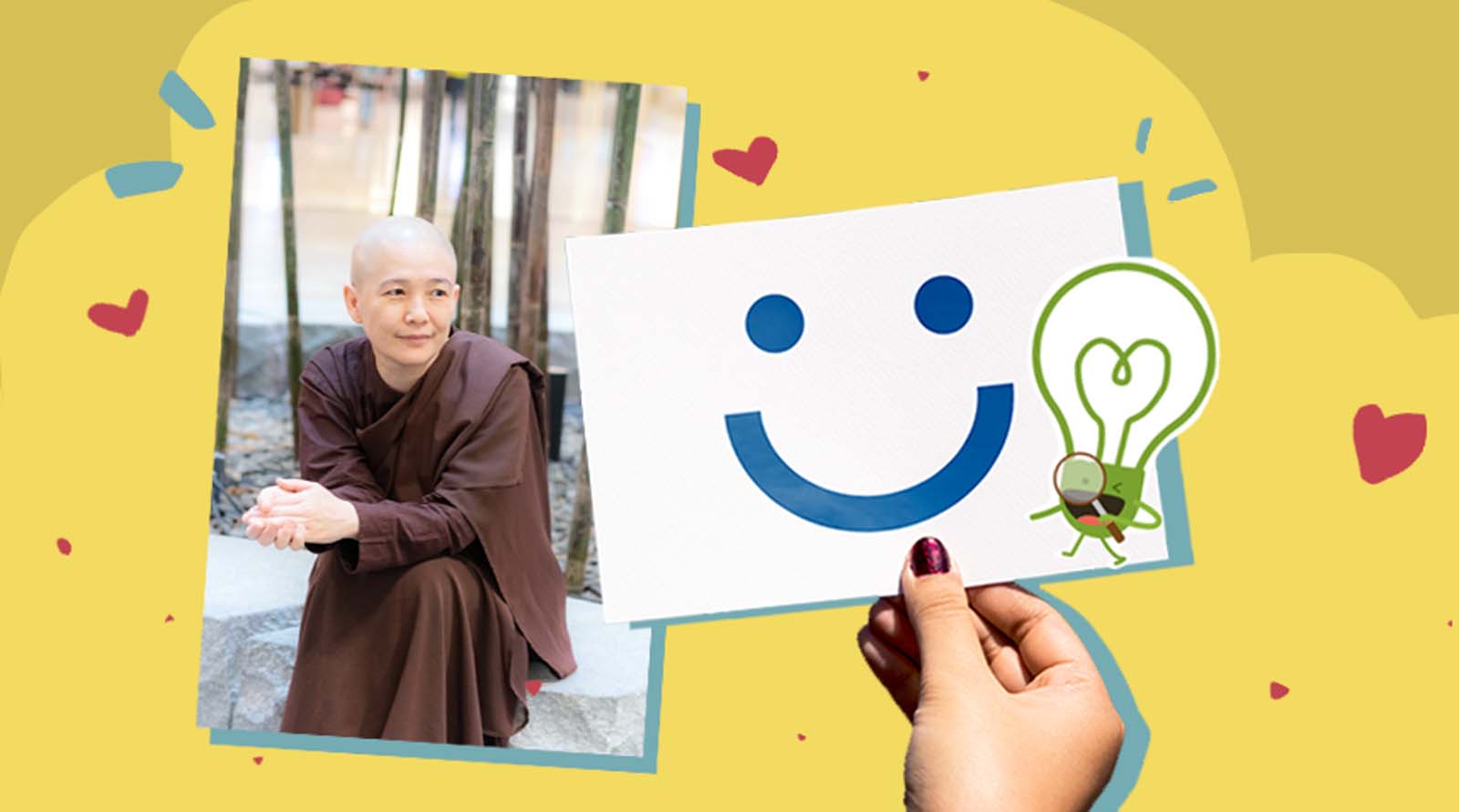Editor’s note: In conversation with Sayalay Sujata, a financial broker turned Buddhist Nun. Cheryl shares her learnings and insights from her chat!
TLDR: The chase, the corporate life, where can we find happiness? Sayalay Sujata, a Buddhist Nun, shares more about her journey and that you need not become a monastic to experience contentment in life!
The chase of travel, wine, food, and luxury
Sayalay grew up in a family where material wealth was not abundant, and she thought pursuing and owning material wealth will help to fill that lack and bring her happiness in life. And thus, the endless pursuit for the 5Cs’( this was in the 80s, 90s) began.
She worked hard in the banking industry and was living the “material dream.” With a high-paying job, her luxurious lifestyle was enviable to many looking from the outside – travelling, wine and dine, expensive exotic food were the norms.
However, as she filled her life with material pleasures, somewhere deep down, she was still unable to deny the sense of emptiness within her, and she was stuck in the state of, ‘having everything, yet not feeling happy.’
The shine of chasing material wealth for happiness started to wear off a little.
Happiness found in the quiet

With a stroke of right luck and good timing, she went for her first seven-day meditation retreat without much expectations.
She followed the teacher’s instructions, and on the fifth day, she experienced a short but profound moment of peace, calm and joy in her heart. And she found the answer right then and there to her question: “Where can happiness be found?”
That was the start of her Dhamma journey which eventually led her down the path of taking up the robes of a monastic.
Her story taught me that thinking that happiness comes from outside – either from another person or some activities or achievement in our life, can cause us a lot of disappointment.
Perhaps happiness is not out there, nor in the next moment, but right here and now. We complicate happiness by adding on terms and sometimes impossible conditions – after getting a pay rise, after $X million, after the next social media post.
This perspective narrows the definition of happiness to become outcome-specific, as it is conditional upon getting what we want. By extension, when things don’t go the way we want, life becomes miserable.
Stopping the scrolling and grounding our attention
In Sayalay’s journey, it seems that the answer to happiness is to stop the pursuit. It was when she disconnected from the world and come into the present moment with no expectations, that she found happiness. Simply pause, and connect to our present moment – through the five senses. It was when she interacted with her experiences of the world through what she sees, hears, touch, taste, feel, that she was able to feel a deep sense of peace.
Maybe when you are next on the MRT, stop scrolling and just take a gentle in and out breath and ground your attention back to your physical body. It helps brings us back to the here and now, to take in where we are on our journey (pun intended), and for the possible first time, experience the abundance that we already have in our lives.
Happiness is simple, happiness does not ask for much and we can awake to that by remembering to be present in the here and now.
After 20 years as a nun, what is the path?
The conversation with Sayalay also took a deeper turn as she reflected on her 20 years as a monastic. We discussed the idea of renunciation.
Traditionally, most people will think that ordination (to become a monk or nun) is the only path for someone who chooses to practice Buddhism seriously.
But after walking through the whole journey herself, she realized that ordination is not the only path we need to walk towards to find true peace and happiness.
To find true peace and happiness, the answer lies in getting to know ourselves better. Reflecting on the ups and downs in our life can bring clarity to what contributes to a happier life, and on the flip side, what perpetuates our stress and restlessness.
This helps us to focus on the important areas in our lives, and relinquish the conditions for suffering. No matter what outfit you come packaged in, be it a monastic or lay person, “Theravadan”, “Mahayanan” or “Tibetan”, she reminds me that mental relinquishment is much more important than physical relinquishment and if done right, you can experience a sense of peace and grounding.
For example, relinquishing your bad habits and selfish thought patterns yields more happiness than clinging to the identity of “being a Buddhist,” and engaging in endless debates on which is the “best” Buddhist tradition.
Escaping the judging mind
Often, I get caught in the packaging rather than the contents – and project my expectations and ideals rather than focus on the heart of the teachings.
For example, when observing rituals or chanting ceremonies that I’m unfamiliar with, I notice that my mind jumps into the “judging mode” and I wear a sceptical lens.
Rather than appreciating the peaceful practice, my mind compares the experience and immediately labels it as “good” or “bad”.
Sayalay’s timely sharing on looking at what’s important, not just the packaging taught me to open my heart and invite curiosity into whatever I experience in the present moment, and more importantly, to take the opportunity to reflect on whether judging others contribute to my happiness.
If it doesn’t add to long-term happiness in my life, then use the experience as a lesson in “relinquishment” of my views.
Despite being a monastic for 20 years, Sayalay has a very humble presence that makes her easy to talk to and for me to open up to. I have learnt a lot from Sayalay’s inspiring journey and found many relatable aspects of her life that I experience in my own life. It reminded me that everyone is on their journey searching for meaning and true happiness in their lives, and the least we can do is to try to encourage each other on the wholesome path of seeking.
Wise steps:
- Finding pockets of time during your commute, to know what’s going on in the moment to breathe and just be with your breath
- Whenever we are caught up in a critical mind, to pause our judgments and ask, does judging others make us happy?


